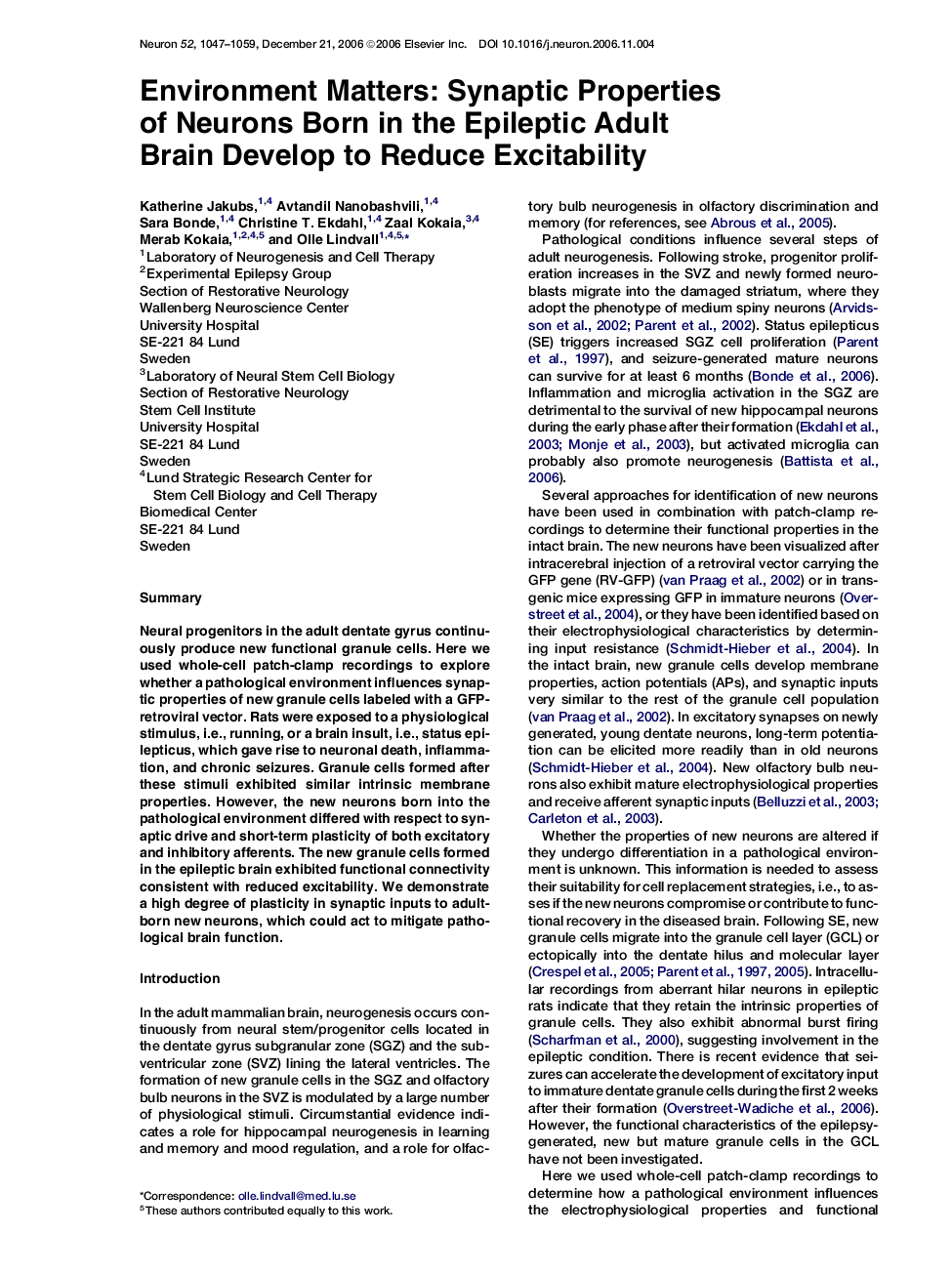| Article ID | Journal | Published Year | Pages | File Type |
|---|---|---|---|---|
| 4323028 | Neuron | 2006 | 13 Pages |
SummaryNeural progenitors in the adult dentate gyrus continuously produce new functional granule cells. Here we used whole-cell patch-clamp recordings to explore whether a pathological environment influences synaptic properties of new granule cells labeled with a GFP-retroviral vector. Rats were exposed to a physiological stimulus, i.e., running, or a brain insult, i.e., status epilepticus, which gave rise to neuronal death, inflammation, and chronic seizures. Granule cells formed after these stimuli exhibited similar intrinsic membrane properties. However, the new neurons born into the pathological environment differed with respect to synaptic drive and short-term plasticity of both excitatory and inhibitory afferents. The new granule cells formed in the epileptic brain exhibited functional connectivity consistent with reduced excitability. We demonstrate a high degree of plasticity in synaptic inputs to adult-born new neurons, which could act to mitigate pathological brain function.
